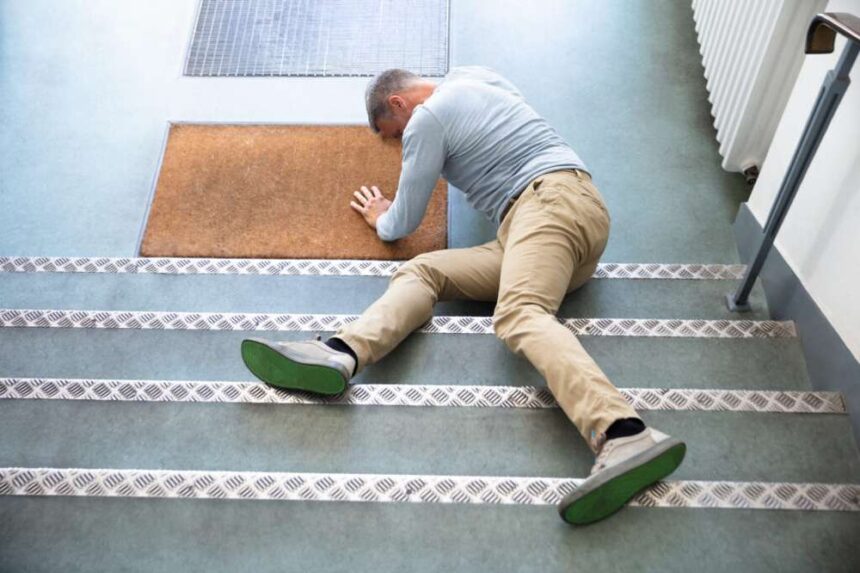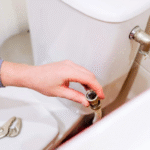A simple trip in a grocery store aisle. A wet floor with no sign. A cracked sidewalk. These situations may seem minor—but they can lead to serious injuries. Slip-and-fall accidents are more common than people think, and they often result in hospital visits, time off work, and long-term pain.
But here’s the twist: while some victims win big compensation, others walk away with nothing at all. Why the huge difference? It all comes down to proof, timing, and legal support. In this article, you’ll learn why some people succeed in court—and why others lose out, even when they’re clearly hurt.
What Counts as a Slip-and-Fall Case?
It’s Not Just Falling—It’s About Who’s Responsible
A slip-and-fall accident happens when someone is injured after slipping, tripping, or falling due to a hazardous condition on someone else’s property. These cases fall under premises liability law, which means property owners must keep their places safe.
Common causes include:
- Wet or recently mopped floors
- Uneven sidewalks or cracked pavement
- Poor lighting in stairwells or hallways
- Loose rugs or carpeting
- Icy or snow-covered entrances
Not every fall leads to a claim. To have a strong case, you need to show that the property owner knew or should have known about the danger—and failed to fix it.
Why Do Some Victims Win Large Settlements?
Strong Evidence Makes All the Difference
Those who win big usually have one thing in common: evidence.
Winning cases often include:
- Photos or videos of the hazard (taken right after the fall)
- Incident reports filed with the business or property manager
- Medical records showing immediate treatment
- Witness statements from people who saw the fall
- Security footage, if available
The more proof you have, the harder it is for the other side to deny fault.
Serious Injuries and Medical Proof Matter
Big settlements usually come with big injuries—like:
- Broken bones
- Spinal damage
- Traumatic brain injuries (TBIs)
- Long-term disability
A sprained ankle might not lead to a six-figure settlement, but a head injury with lifelong consequences might.
Legal Help Levels the Playing Field
Many of the most successful victims work with a personal injury lawyer. Lawyers understand the law, negotiate with insurance companies, and help prove fault. They also know how to calculate the full cost of an injury—not just hospital bills, but lost wages, future care, and pain.
Why Do Some Victims Lose Their Case?
Waiting Too Long to Act
Every state has something called a statute of limitations. That’s a legal deadline for filing a claim—usually 1 to 3 years after the fall. Wait too long, and you lose your chance.
But it’s not just about time. If you wait even a few days to get medical care or report the accident, the other side can argue your injury wasn’t serious—or didn’t happen there.
No Clear Evidence of Fault
Many slip-and-fall victims lose because they can’t prove the property owner was careless.
Common reasons cases get thrown out:
- No photo of the scene
- No witnesses
- The hazard wasn’t there long enough for the owner to know
- The victim wasn’t paying attention (like texting while walking)
You need to show that someone else’s mistake caused the fall—not just bad luck.
Insurance Companies Know the Game
Insurance adjusters are trained to save money—not to be fair. They may:
- Blame you for the fall
- Say the injury isn’t serious
- Offer a low settlement fast
- Stall until you give up
Without a lawyer, many victims don’t know how to push back.
What Can You Do After a Fall to Protect Yourself?
Take Action Right Away
If you fall, try to:
- Take pictures of where it happened
- Report it to the store manager or landlord
- Ask for names and contacts of witnesses
- Get medical help, even if you feel fine
- Save receipts, medical notes, and written reports
These steps protect your right to make a claim later.
Don’t Settle Too Fast
It’s tempting to take the first offer from an insurance company—especially when bills are piling up. But early offers are usually too low. Once you accept, you can’t ask for more later—even if your injury gets worse.
A personal injury attorney can review the offer and help you decide if it’s fair.
What Role Does a Lawyer Play in a Slip-and-Fall Case?
Building a Strong Case
A good lawyer can:
- Investigate the scene
- Collect medical records and expert opinions
- Talk to witnesses
- File the claim correctly and on time
- Negotiate or take the case to trial if needed
Most injury lawyers work on a contingency fee, which means they only get paid if you win.
Helping You Understand Real Value
Injury claims aren’t just about emergency bills. Lawyers look at:
- Lost income (past and future)
- Ongoing rehab or surgeries
- Emotional stress and trauma
- Loss of mobility or independence
That’s why some people end up with $100,000+ settlements—while others settle for less than $1,000.
Conclusion: Don’t Let Your Case Slip Away
A slip-and-fall might sound simple—but legally, it’s anything but. The difference between winning big and walking away with nothing often comes down to how you respond, what you document, and whether you get help.
If you’ve been injured in a fall:
- Act fast
- Gather proof
- Don’t trust the insurance company blindly
- Consider talking to a personal injury lawyer
Because the truth is, when it comes to slip-and-fall accidents, what you do next can make all the difference.


